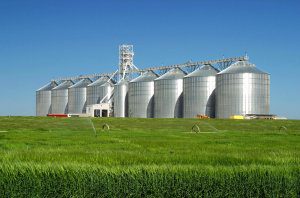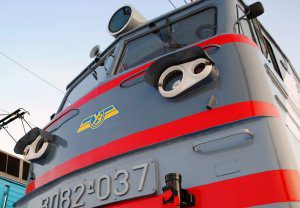
KYIV. Nov 1 (Interfax-Ukraine) – Public joint-stock company Ukrzaliznytsia has finished drilling of the new two-track Beskydsky tunnel on October 28 in line with the schedule.
The company said in a Monday press release that the tunnel was drilled in two stages: the upper section and the lower section. A total of 1,764 meters were drilled.
The workers are improving the roadbed at the approaches to the tunnel, installing the track at the approaches and in the tunnel, assembly lighting, communications and control lines. It is planned that the works will be finished by late May 2017.
The workers continue drilling rooms and niches in the tunnel. It is required that niches will be staged each 30 meters, with niches and open areas made each 150 meters.
The new two-track tunnel will replace the existing single track one, which was built in 1886. It has a speed limit of 15-40km/h and remains the only “narrow” place in the Chop-Lviv direction. The new tunnel is designed for a speed of 60-70 km/h and increase the capacity of this section of the track from 47 to 100 pairs of trains per day.
The first train will pass the new tunnel in Q2 2018.

KYIV. Nov 1 (Interfax-Ukraine) – Public joint-stock company State Food-Grain Corporation is mulling the possibility of implementing joint project on modernization of elevators and building a new deep port terminal with China’s CCEC.
The corporation said in a press release on Monday that total investment would preliminary total near $500 million.
Some $25 million will be sent to modernize the Odesa grain terminal. This will help to increase its capacity and reduce expenses on loading of ships. After the modernization the company will be able to service ships of Panamax type, stop loading ships in the harbor and cut the freight cost. The operating capacity of the terminal would expand to 120,000 tonnes. This would allow accumulating cargo for around two ships.
Acting Board Chairman of State Food-Grain Corporation Oleksandr Hryhorovych said that $130 million will be invested in reconstruction of elevators and mills. This would cut production expense by over 35%.
The project envisages construction of new elevators in Kyiv and Vinnytsia regions with a total capacity of 150,000 tonnes.
The investment plan of the corporation includes the creation of additional facilities for grain handling thanks to construction of a new deep port elevators and reconstruction of existing berths. Almost $135 million will be sent to implement the project.
“After the completion of the construction project, the corporation would be able to operate a modern sea terminal with a possibility of loading ships with deadweight of up to 100,000 tonnes and an operation capacity of 300,000 tonnes. This would expand our entire annual grain loading capacity (water transport) to 5 million tonnes,” he said.
Over $160 million will be sent to the project to create own logistics division. It is planned to produce and buy railway grain carriers.
“We seek to buy almost 3,000 wagons. They would meet the corporation’s needs in shipping grain, reduce our operating expenses and minimize risks of a shortage of Ukrzaliznytsia’s wagons we see now,” he added.

KYIV. Nov 1 (Interfax-Ukraine) – The need in the main haulage cargo, passenger and shunting locomotives for 2017 is 2,492, while by 2025 the need would expand by some 16%, to 2,881 locomotives.
According to the press service of public joint-stock company Ukrzaliznytsia, the company calculated that by 2025 the need in acquiring new main haulage locomotives is around 90 units, and new locomotives – around 460 units. The sector needs 230 of cargo electric DC locomotives, 160 cargo electric AC locomotives, 20 AC/DC locomotives for passenger transportation and 50 cargo AC/DC locomotives.
In November Ukrzaliznytsia’s specialists would propose to consider the strategy for upgrading the locomotive fleet until 2015 to the company’s board.

Leaders of the Ukrainian League of Industrialists and Entrepreneurs (ULIE) have taken part in an
international investment conference in Budapest, Hungary, being a meeting point for business
associations, companies from Moldova, Germany, Belarus, Turkey, Latvia, and others. It was organized
by the International Congress of Industrialists and Entrepreneurs (ICIE) and the National Association of
Entrepreneurs and Employers (VOSZ) of Hungary.
ULIE President Anatoliy Kinakh, who holds the post of First Vice-President at the ICIE, informed
international partners about Ukraine's experience in raising capital for the modernization of production
facilities, development of dialogue between the government, businesses and society to accelerate
economic reforms and partner investors' opportunities in the domestic market.
The participants in the event discussed the development of cooperation and foreign economic relations
in the fields of industry, agriculture, transport, service delivery, etc.
"As of today, Hungary with its $610 million in capital investment accounts for 1.4% of total foreign direct
investment in Ukraine. And this trend should be developed. What is more, the Ukrainian party
(government, businesses, NGOs) is actively working to accelerate the reforms to improve the business
climate. A new anti-corruption law has been passed recently; the situation in customs and tax
administration is getting better. Hopefully, the most pressing issues that potential investors were
concerned about will be quickly resolved, and we can talk about considerably boosting cooperation,"
Anatoliy Kinakh said.
In his view, all the states need to conduct a well-considered investment policy, especially it concerns the
former Soviet Union republics whose task is to upgrade their production facilities and stake on
innovation.
At the same time, the ULIE President encourages domestic producers to adapt their products to the
technical regulations and standards of the EU as soon as possible, urging the state and business
associations to assist in this at most. This would allow Ukrainian goods to be more competitive and
attractive not only on the European market, but also on the other markets, namely in the United States,
Canada, etc., as international standards are similar everywhere.
Also, during his visit to Budapest, Anatoliy Kinakh met with Ambassador of Ukraine to Hungary, Ms.
Lyubov Nepop. They jointly outlined the scope of the national business and investment interests in
Hungary, agreed on close cooperation in the promotion of Ukrainian producers in that country and
others.
"We've got what to work on: our exports to Hungary in monetary terms are very low – $627 million (in
the first half of 2016). At the same time, the partners have interest in Ukrainian-made products, namely
farm produce, commodities of machine-building and the light industry, etc.," the ULIE President said.
Reference information. The International Congress of Industrialists and Entrepreneurs (ICIE) is a union of
business associations, and inter-state non-governmental organization incorporating the largest public
business associations from 27 countries, including Poland, Hungary, China, Kazakhstan, Italy and so on.
The ICIE's task is to assist in the implementation of major international infrastructure projects in
engineering, the transport sector, economic security, including through cooperation with the EU,
international and regional organizations.

To create one million jobs as self-employment, small and medium businesses in Ukraine is a realistic task
for two years. This will stimulate the domestic market, ensure a significant increase in GDP, stop the
outflow of specialists and workers abroad. The main thing is to ensure that working and potential
entrepreneurs could have access to financial resources, regular training and to prop up attractiveness of
business initiatives in society. These issues are on the radar screens of some influential non-
governmental organizations and representatives of large companies in Ukraine: Kyiv hosted the first
Ukrainian business forum "Ukraine is a Country of Entrepreneurs," which is designed for young business
people and those who have only started thinking about their own business. It was organized by the
Ukrainian League of Industrialists and Entrepreneurs (ULIE) with the support of PrivatBank.
The event brought together a large number of participants, among them were representatives of the
European Bank for Reconstruction and Development, the Ukrainian government, Parliament,
international organizations, successful businessmen and founders of startups, consultants and others.
Real opportunities and prospects for the implementation of new business ideas, as well as practical
tools to create or develop own companies were demonstrated to the beginners.
"More and more of our fellow citizens – about 65% of young people – are interested in the opportunity
to start up their own business, but a mere 4% do this. Here we are working in several directions to
change the situation: to provide the most favorable conditions for business development (access to
credits, tax incentives) and convince our talented compatriots not to be afraid of developing on their
own by launching their own projects and setting up their own companies," ULIE President Anatoly
Kinakh has said.
He stresses it is time to stop demonizing large corporations, which have just started kicking off similar
socially responsible projects, as it is time to join hands with other financial institutions, the state and
non-governmental organizations.
"In future, utilizing public-private partnership, the initiative should become the basis for the formation
of a national strategy for strengthening of the middle class, development of small businesses. In other
countries it is the main stabilization factor and source of budget payments (50-70%)," the leader of the
business community said.
Representatives of the parliament, international financial institutions, who were invited to the event,
positively assessed the potential of this project titled "Ukraine is a Country of Entrepreneurs." To
implement the ambitious goal – create 1 million jobs, only UAH 20 billion in loans is needed along with
consolidated efforts by businesses, the government, financial institutions, Ukrainians themselves. In
turn, as stated by chairperson of the parliament's committee on tax and customs policy, Nina Yuzhanina,
Members of Parliament will work closely with officials, experts to not only introduce effective tax
changes, but also to conduct a comprehensive fiscal reform.
During the Kyiv forum, several hundred participants received individual counseling from experts on
business registration, accounting, tax accounting, legal support, franchising, e-commerce, and other
issues.
As this is a socially oriented project, it also covers startup and business development training for former
participants in the Anti-Terrorist Operation and internally displaced persons.
Similar business forums will be held in the regions with the involvement of local authorities. The concept
of the project will be updated following the analysis of proposals and comments from businessmen,
professionals who participate in such forums.

BAKU. Oct 31 (Interfax-Ukraine) – Iran Khodro (IKCO) seeks to export passenger cars made at a plant in Azerbaijan to Ukraine and Georgia, Ukrainian mass media have reported.
“IKCO is holding talks on supplies of cars that will be manufactured at a plant in Azerbaijan to Georgia and Ukraine,” IKCO Director for CIS Sabina Nobari said.
According to media reports, cars of manufacturers from Iran several times appeared on the Ukrainian market. These were Samand sedan cars imported by Kharkiv’s Megatrans and Saipa four-door cars. Bogdan Autotrade imported Saipa cars in 2014-2015. When the Euro 5 emission requirements took effect in Ukraine, imports of these cars was halted.
Azerbaijan’s Azevrocar and Iran Khodro decided to create joint car production facilities. The first investment in construction of the plant is estimated at $15 million. The plant will be launched in 2018. Its annual production capacity will be 10,000 cars.